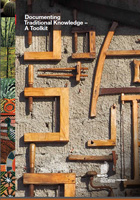Fixation des savoirs traditionnels et des expressions culturelles traditionnelles
La fixation des savoirs traditionnels et des expressions culturelles traditionnelles est un processus qui permet de recenser, de collecter, d’organiser, d’enregistrer ou de répertorier ces savoirs et expressions.
Du point de vue de la propriété intellectuelle, tout processus de fixation doit être encadré par des objectifs et des principes solides et s’appuyer sur une évaluation claire des risques et des avantages potentiels, en particulier pour les peuples autochtones et les communautés locales.
Sur demande, l’OMPI fournit des informations sur les incidences de la fixation des savoirs traditionnels et des expressions traditionnelles culturelles sur le plan de la propriété intellectuelle aux pouvoirs publics, aux peuples autochtones et aux communautés locales, ainsi qu’aux institutions culturelles qui souhaitent ou doivent fixer de tels savoirs et de telles expressions.
Nos domaines d’activité
Fixation des savoirs traditionnels et des expressions culturelles traditionnelles au sein des communautés
Sur demande, l’OMPI fournit aux peuples autochtones et aux communautés locales des orientations pratiques sur la manière de mener des projets de fixation des savoirs traditionnels et des expressions culturelles traditionnelles et sur la manière d’aborder les questions cruciales relatives à la propriété intellectuelle qui se posent au fur et à mesure de la mise en œuvre de ces projets.
Ressources
- Guide de la fixation des savoirs traditionnels
- Documenting Traditional Medical Knowledge (Fixation des savoirs médicaux traditionnels) (en anglais) (PDF)
- Projet relatif au patrimoine créatif – Fixation et gestion des expressions culturelles traditionnelles
Musées, bibliothèques et services d’archives
Les musées, les bibliothèques, les services d’archives et d’autres institutions culturelles jouent un rôle primordial dans la préservation des collections de savoirs traditionnels et d’expressions culturelles traditionnelles et dans l’accès à celles-ci.
Ces collections soulèvent un certain nombre de questions de propriété intellectuelle particulières. Certains peuples autochtones et certaines communautés locales craignent que la fixation et la présentation des expressions culturelles traditionnelles et des savoirs traditionnels ne les exposent à une appropriation et à une utilisation illicites.
Sur demande, l’OMPI fournit aux institutions culturelles des informations sur la gestion des intérêts et des droits de propriété intellectuelle, en mettant particulièrement l’accent sur les collections comprenant des expressions culturelles traditionnelles et des savoirs traditionnels.
Ressources
- Propriété intellectuelle et préservation des cultures traditionnelles – Questions juridiques et options concrètes pour les musées, les bibliothèques et les services d’archives ( PDF)
- Gestion de la propriété intellectuelle à l’intention des musées
- Enquêtes sur les pratiques, protocoles et politiques existants
- Codes, guidelines and practices relating to the recording, digitization and dissemination of TCEs (en anglais)
- Cultures traditionnelles, peuples autochtones et institutions culturelles (OMPI Magazine 2/2010)
- Archives et musées : Équilibre entre protection et conservation du patrimoine culturel (OMPI Magazine 5/2005)
- Guía de Buenas Prácticas para Administración de la Propiedad Intelectual en Museos y Archivos de Argentina (en espagnol) (PDF)
La protection défensive des savoirs traditionnels
La protection défensive a été définie comme un ensemble de stratégies visant à empêcher l’obtention de droits de propriété intellectuelle illégitimes ou infondés sur les savoirs traditionnels. Ces mesures comprennent la modification de systèmes de brevets administrés par l’OMPI (le système de classification internationale des brevets et la documentation minimale du PCT). Certains pays et peuples autochtones et certaines communautés locales mettent également au point des bases de données sur les savoirs traditionnels qui peuvent servir de preuve de l’état de la technique pour faire échec à une revendication de brevet portant sur ces savoirs.
Ressources
Rapport sur la compilation de données relatives aux bases de données sur les ressources génétiques et les savoirs traditionnels qui y sont associés (document WIPO/GRTKF/IC/40/9) (PDF)
